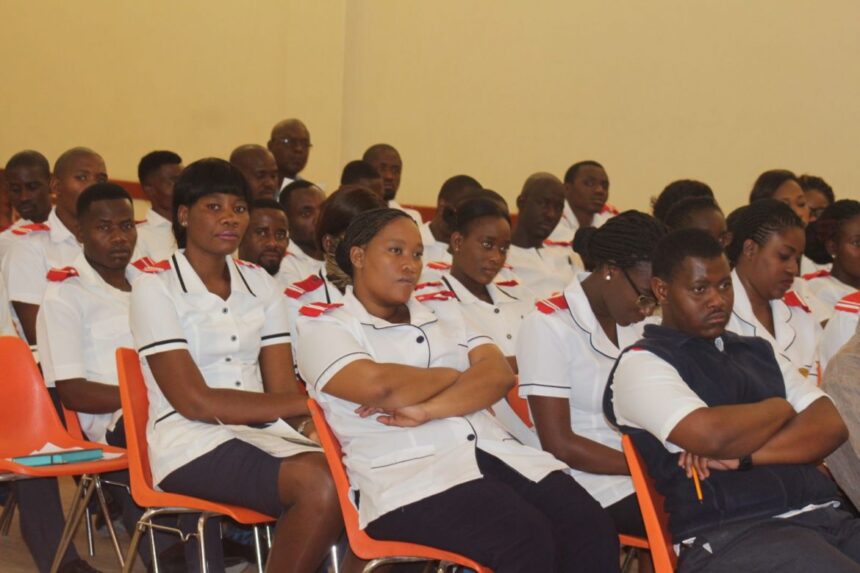Due to the mushrooming and oversupply of midwifery educational institutions in Namibia, the Health Professions Council of Namibia (HPCN) has decided to reduce the number of nursing student intakes.
In a recent directive that has been received with mixed reactions, the HPCN stated that the number of nursing and midwifery students has surpassed the capacities of the approved training hospitals and health facilities.
“This situation negatively affects the quality of the nursing and midwifery training in Namibia, compromises the standards of nursing and midwifery practice, patient safety, and contributes to a high unemployment rate amongst nursing and midwifery graduates,” stated the council’s CEO, Cornelius Weyulu.
He added: “The regulatory directives aim to maintain the quality of nursing and midwifery training, prevent deficiencies in nursing and midwifery practices, and ensure public protection”.
Measures taken to address this issue include the reduction of the number of students, and limiting it to 50 students per campus per annum.
“In cases where an educational institution has already enrolled students beyond this number, this directive will apply on the next intake. All approved educational institutions must have one intake of students per year,” stated Weyulu.
He said no new nursing and midwifery campuses should be opened until further notice.
This directive excludes new campuses already approved by the council that have not yet commenced with training.
From January 2025, all locally trained nursing and midwifery graduates must pass the nursing council evaluation before registration or enrolment as practitioners.
“Non-compliance with the directives by an approved educational institution will result in the withdrawal of its approval by the nursing council,” he warned.
Available data shows that among the seven institutions registered with the council, 4 655 students are enrolled.
The HPCN indicated that institutions that offer nursing courses have been consulted regarding this directive, and are expected to ensure the implementation is effective next year.
The University of Namibia (Unam), with about 426 students registered at their various campuses, welcomed the move by the council, and promised to stick to the directives and ensure quality education is continued.
“The university welcomes the recent regulatory directives on nursing and midwifery training in Namibia by the HPCNA. In line with changes in the nursing and midwifery training landscape, the School of Nursing and Public Health at Unam has already been gradually reducing its annual intake over the past few years – from 80 students to 60 first-year students. With the new directive, reducing the intake further to 50 students by the 2025 academic year should be manageable for the school,” spokesperson of Unam Simon Namesho told New Era.
The School of Nursing and Public Health is offered at four of the 12 campuses: Main Campus (Windhoek), Oshakati Campus, Rundu Campus and Southern Campus (Keetmanshoop).
He said this regulatory adjustment is not expected to negatively impact the university’s operations.
“It could enhance the efficiency of teaching and training. For example, if there were capacity challenges in the skills lab that required repeated classes, the new intake limit will likely reduce such challenges,” he said.
He noted that although fewer students may mean reduced tuition revenue, the university is confident it can maintain optimal operations with the intake limit of 50 students.
He stated that the quality of graduates remains a top priority, especially considering the limited capacity of approved training hospitals and health facilities in Namibia.
Namesho said: “The School of Nursing and Public Health has been focussing on expanding its postgraduate programmes over the last two years, aiming to train specialists in various nursing and health-related disciplines. This strategic move complements the focus on quality education and specialised training in the health sector”.


